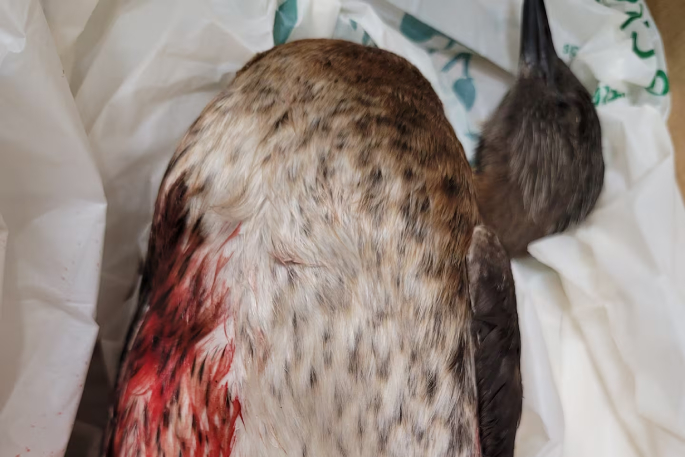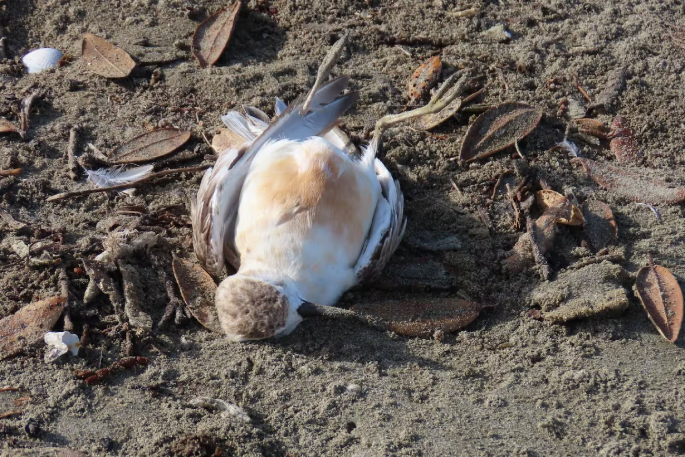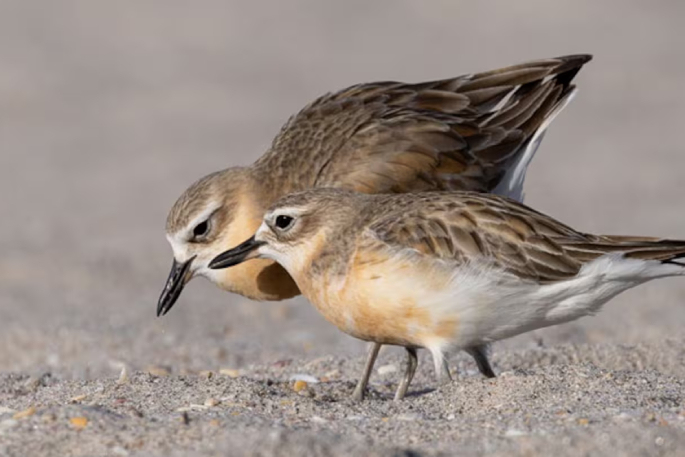Warning: Distressing images
Cruelties against protected birds have increased, with 19 incidents reported this summer, up from 14 last year.
Incidents include shootings, nest fires, and deliberate drownings, with some acts committed by youths.
The Department of Conservation urges the public to report wildlife crimes to help catch offenders.
Shootings, nests deliberately set alight, live traps, slug guns, blow darts, dogs and quad bikes.
These are the cruelties that have maimed and killed New Zealand’s protected birds - including a kea - this summer.
The Department of Conservation (DoC) lifted the lid on the “horrific” incidents as they climb year-on-year.
DoC has recorded 19 incidents in the past three months, up from 14 in the summer of 2023/24, and 13 the summer prior.
The cruel acts have taken place in every region except Northland.
But DoC wildlife crime team lead Dylan Swain believed there was a strong chance incidents were happening and were either being dealt with locally or not reported.
He has been the most shocked by acts that deliberately targeted protected birds.
“One particularly horrific incident was a report of youths setting a bird’s nest on fire.”
The disturbing revelation near Queenstown was brought to DoC’s attention via Snapchat.
However, the culprits couldn’t be identified so the department had to close the case.
“Ones like that horrify us where it’s clear, deliberate offending against these protected birds,” Swain said.
DoC was distressed to learn of the deliberate drowning of seabirds in the Coromandel earlier this month.
It followed the trampling of a dotterel breeding ground in Waihī that drew condemnation from former Prime Minister Helen Clark.
Yet to make headlines are two shootings in Christchurch - a paradise shelduck maimed with a blow dart, and a kea shot dead.
A variable oystercatcher, several pukeko, a dabchick, and a red-billed gull have all found themselves in the firing line too - some shot with slug guns.

The dabchick believed to have been shot in Rotorua. Photo / DoC
“We are seeing people disturbing nests a lot more as well,” Swain said.
Often it was people on quad and dirt bikes or dogs tearing through protected areas on beaches or riverbeds.
Those scenes are not unfamiliar in Northland as dotterel have, in the past, being killed by dogs at the Ruakākā Wildlife Sanctuary, or seagulls in Onerahi targeted by drivers.
Swain said the death of one bird could be a major upset for its population depending on the species.
“It’s devastating for us to see the hard work of not only us but local community groups go down the drain because whether we catch the offender or not that bird has already been shot and injured or killed.”

A severely injured dotterel on Big Manly Beach in Auckland. Photo / DoC
Adding to the upset was that young people at times were at fault.
“It seems in most of those cases it’s just recklessness or showing off, a bit of bravado to mates... whether it be with a vehicle or slug gun or blow darts,” Swain said.
The proof was the videos of cruel acts uploaded to social media for likes, he explained.
DoC accepted summer holidays led to “natural conflict” between people and wildlife.
Swain said birds were nesting or caring for chicks at the same time New Zealanders were enjoying the great outdoors.
Swain believed a lack of understanding about the great scope of protected birds perhaps led to recklessness, particularly regarding vehicles on beaches.
He said people often disregarded seagulls - particularly red-billed and black-billed gulls - despite them being protected.

A red-billed gull. Photo / NZME
Catching offenders was frustrating for DoC as the department was often the last port of a call after a social media shaming.
“Many times these incidents happen far away from main centres - particularly out from beaches and river beds - and often we’ll be told about it significantly after the event,” Swain said.
DoC tracks down who they can and when it comes to young people, Swain said, they work with families and police to curb the behaviour.
Other cases can land an infringement or prosecution.
Hunting or killing absolutely protected wildlife can result in penalties of up to two years imprisonment, a fine of up to $100,000, or both.
Swain said the department is calling on Kiwis to report any untoward behaviour involving wildlife.
He encouraged people to report details such as vehicle registrations and a thorough description of what has taken place to 0800 DOC HOT or wildlifecrime@doc.govt.nz



3 comments
Hmmm
Posted on 26-01-2025 12:16 | By Let's get real
Interesting to hear from an associate that a report of an injured bird to the local SPCA (Tauranga) resulted in a phone transfer to a veterinary clinic in Waihi.
Maybe it's only protected species that warrant attention...?
Camera's
Posted on 26-01-2025 18:42 | By R1Squid
Personally, not the outcome I would like, but there is a big BUT.
If Camera's can keep society safe from the degenerates - then let us have a police state!
Consequences
Posted on 27-01-2025 17:32 | By NZoldkiwi
This is a part of our modern society where there are no consequences for their actions. We are bringing up a generation that don't give a toss about other people or any animal that is just trying to survive. Consequences need to be much tougher for these degenerates.
Leave a Comment
You must be logged in to make a comment.